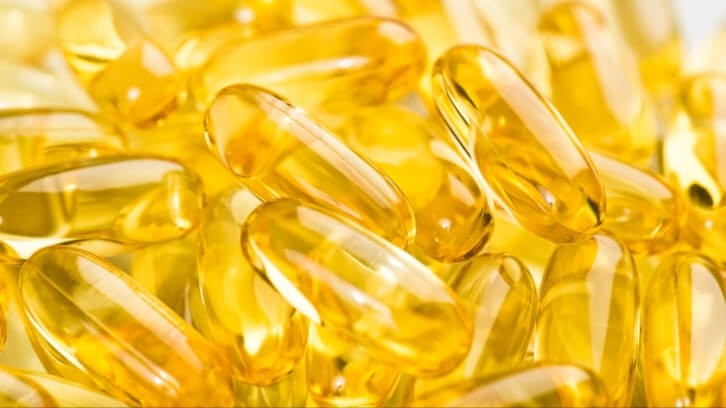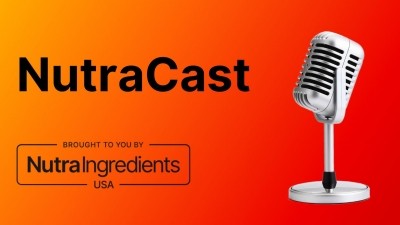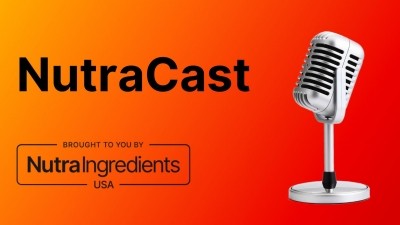Ahiflower Oil matches marine DHA for tissue DHA needs: Study

Data published in BBA - Molecular and Cell Biology of Lipids indicated that brain DHA synthesis and turnover rates in mice fed Ahiflower oil were not statistically different than in mice fed a purified marine DHA-only oil, consumed at realistic human-equivalent intakes that were matched for total polyunsaturated fatty acid (PUFA) content.
“This is the first study to assess synthesis/turnover of DHA from Ahiflower oil, a plant-based source of n-3 PUFA with a unique fatty acid composition high in SDA, which is also the product of the putative rate-limiting enzyme in the n-3 PUFA biosynthesis pathway, Δ6-desaturase,” wrote researchers from University of Toronto and Natures Crops International.
“Our findings indicate that Ahiflower oil may be a useful plant-based dietary source for maintaining DHA turnover comparably to dietary DHA,” they added.
Ahiflower oil
Oil from Ahiflower (Buglossoides arvensis) reportedly offers the highest levels of non-GM omega-3 essential fatty acids among commercially available dietary plant oils, combining ALA (alpha linolenic acid) and high levels of SDA (stearidonic acid). It also offers GLA (gamma linolenic acid), an omega-6 essential fatty acid, and oleic acid, an omega-9 fatty acid, to complement the overall healthy profile of this plant oil.
It has long been accepted that there is low conversion of ALA, the predominant omega-3 in plant sources such as flax, chia and hemp, into EPA, one of the two (along with DHA) omega-3 fatty acids for which most of the research on health benefits has been done. Most experts peg this conversion at as low as 3% to as much as 20% for vegetarians. The proportion of ALA converted to DHA is small.
SDA, on the other hand, converts to EPA at ratio of 30% to 35%, and direct consumption of SDA is far more efficient than consuming large amounts of ALA.
Commenting on this research in the context of fatty acid conversion, co-author Greg Cumberford, VP Science & Regulatory with Natures Crops International, said: “For many decades, consumers and practitioners have been told that all plant-based omega-3 sources convert ‘inefficiently’ to longer-chain DHA. This new research indicates that the story with Ahiflower oil is more nuanced.
“Even though dietary Ahiflower oil does not raise circulating DHA levels, it is clearly forming liver, adipose, and brain DHA quite efficiently in mice, with comparable efficiency as purified marine DHA.”
Study details
The research team, led by Prof Richard Bazinet and Assistant Prof Adam Metherel, applied compound specific isotopic analysis is to DHA metabolism in lab mice. The animals were all initially fed 2% algal DHA in total fat diet for six weeks and the then divided into three groups: One group received 1% DHA diet from fish oil, the second group received 4% Ahiflower oil diet (providing 1.9% ALA and 0.8% SDA), and the third group received 4.35% flaxseed oil (providing 2.7% ALA). This second intervention phase lasted for up to 120 days.
Results showed that DHA levels were highest in the liver and fat tissues of the fish oil DHA-fed animals, but the “DHA half-lives and synthesis/turnover rates were not different between Ahiflower and DHA diets in the liver, adipose or brain”, noted the researchers.
On the other hand, DHA half-lives and synthesis/turnover rates in the flaxseed oil group were significantly slower, they added.
“These findings suggest that the distinct Ahiflower oil n-3 PUFA composition could support tissue DHA needs at a similar rate to dietary DHA, making it a unique plant-based dietary option for maintaining DHA turnover comparably to dietary DHA,” wrote the researchers.
“Given the shift towards more plant-based dietary food choices and the potentially ecologically disastrous implications of current dietary DHA recommendations, Ahiflower oil may present an important dietary source of n-3 PUFA capable of supporting tissue DHA requirements in an environmentally sustainable manner.”
A distinctly complementary ‘multi-omega’
Andrew Hebard, CEO and Founder of Nature’s Crops International, said: “We are excited by this and other forthcoming functional health science research findings with Ahiflower oil.
“We hope this new DHA biosynthesis research will add important momentum to Ahiflower oil being embraced as a distinctly complementary ‘multi-omega,’ with its own range of recognized anti-inflammatory cell signaling activities in the body, including a capacity to form as much EPA and DHA as needed in healthy adults while providing a fully scalable, traceable, and climate-resilient source of balanced omegas.”
Source: Biochimica et Biophysica Acta (BBA) - Molecular and Cell Biology of Lipids
January 2024, Volume 1869, Issue 1, 159422, doi: 10.1016/j.bbalip.2023.159422
“Blood and tissue docosahexaenoic acid (DHA, 22:6n-3) turnover rates from Ahiflower oil are not different than from DHA ethyl ester oil in a diet switch mouse model”
Authors: A.H. Metherel et al.














